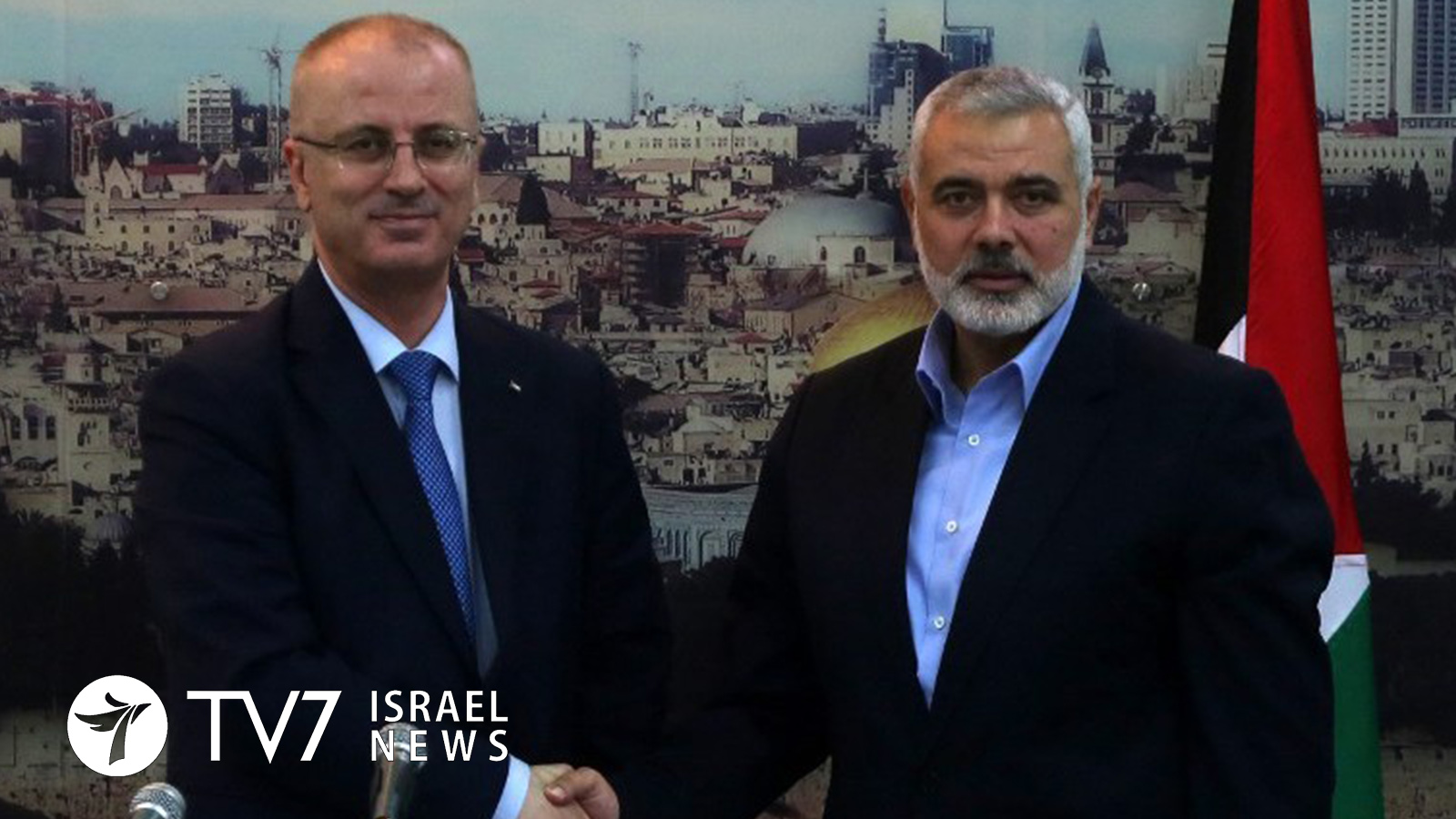In what was declared as a major step toward Palestinian reconciliation between the West Bank-based Fatah and Gaza-based Hamas, the latter announced last week that it was handing over administrative control of the Gaza Strip to a unity government headed by Palestinian Prime Minister Rami Hamdallah. Following Hamas’ announcement, a senior Palestinian delegation arrived in the Gaza Strip yesterday to coordinate the transfer of power, in a move the Palestinian Prime Minister declared was a vital component for the establishment of a Palestinian state. Hamdallah said, “We came with instructions from Abbas to tell the world from the heart of Gaza that the Palestinian state cannot and will not be established without geographical and political unity between Gaza and the West Bank,” the Palestinian Prime Minister said upon arrival in the Gaza Strip.
The transfer of Hamas’ administrative powers in Gaza to the Palestinian unity government was warmly welcomed by the International community, which views the move as a stepping-stone toward humanitarian relief. Nikolay Mladenov, the United Nations’ special envoy to the Middle East said, “I expect that within the next few days as the government begins to take up its responsibilities in Gaza, we will see some of the humanitarian problems in Gaza resolved quickly,” he asserted. While Hamas declares its decision to hand over administrative control as a “strategic move,” Palestinian officials in the West Bank told TV7 that “the growing isolation of Hamas was the key ingredient to the latest developments.” The officials pointed to the significant blows Hamas’ umbrella organization, the Muslim Brotherhood, has suffered in recent years, as well as the ongoing blockade imposed by regional powers on Qatar, Hamas’ main financial backer. The final blow that forced the Hamas’ leadership to relinquish control of its administrative powers, came after Palestinian President Mahmoud Abbas decided to stop paying Israel for electricity it provides the Palestinian enclave, a move that has elevated pressure on the densely populated Gaza Strip due to a rapidly deteriorating humanitarian situation.
Now that Hamas has agreed, however, to relinquish its administrative control in the Gaza Strip to President Mahmoud Abbas’ Palestinian Authority, the Palestinian leader hopes to counter Israel’s argument that it has no negotiating partner for peace. Nevertheless, Israeli officials do not seem impressed by the Palestinian reconciliation bid, stressing that such attempts “happen every two or three years.” Deputy Minister Michael Oren stressed that while Israel continues to aspire for true and lasting peace with all of its Arab neighbors, including the Palestinians, the Jewish state cannot take serious Palestinian President Mahmoud Abbas’ attempts to reconcile with a terrorist organization that seeks Israel’s destruction. Professor Hillel Frisch, an Israeli Middle East analyst who closely monitors the ongoing attempts by the Palestinian rival factions to seek reconciliation, pointed to a demand by Palestinian President Mahmoud Abbas in which Hamas would relinquish its weapons to the Palestinian Authority’s security establishment, a demand vehemently rejected by the Islamist group in Gaza. Professor Frisch further stressed that unless Hamas agrees to relinquish its weapons to the Palestinian Authority, the unity deal would be perceived as meaningless by Israel.
